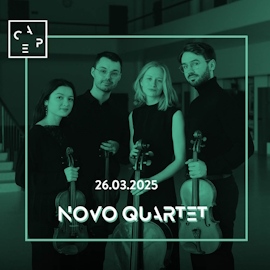Als unermüdlicher Verfechter der Symphonik polnischer Komponisten wendet sich Lukasz Borowicz dem symphonischen Œuvre der Komponistin Grazyna Bacewicz zu.
Die dritte Symphonie aus dem Jahre 1952 macht den Auftakt dieser ersten CD. Der erste Satz, Drammatico, klingt wie eine Tondichtung, und der Hörer kann sich problemlos eine spannende Handlung dazu ausdenken, so evokativ ist die von Borowicz fulminant dirigierte Musik. Das folgende, im Grunde lyrische und pastorale, mitunter aber auch sehr geheimnisvoll klingende Andante ist nicht weniger attraktiv und tonmalerisch.
Der dritte Satz, Vivace, ist viel leichter und spritziger, in dieser Aufnahme auch humorvoll, mit einigen melancholischen Einschüssen.
Ungemein farbig wie der Rest der Symphonie ist auch das Finale, das sich die Komponistin ‘con passione’ wünscht, einem Wunsch dem Borowicz nachkommt, ohne die Musik übermäßig pathetisch oder monumental werden zu lassen. Schwere gibt es jedenfalls keine, denn der Dirigent lässt den Klang dynamisch variieren und auch immer federnd klingen.
Dasselbe gilt für die vierte Symphonie von 1953, in deren erstem Satz (Appassionato. Allegro inquieto) Lukasz Borowicz die exzeptionelle thematische Arbeit der Komponistin wunderbar prägnant werden lässt.
Der zweite Satz, ein manchmal fast pastorales, öfter aber aufgewühltes Adagio führt zum Scherzo, das vor Humor und guter Laune nur so strotzt.
Der letzte Satz beginnt geheimnisvoll und offenbart eine bedrückende Atmosphäre, ehe der Satz zum Allegro furioso mutiert. Wiederum ist die Musik so evokativ, dass man sich dazu die Handlung eines noch zu drehenden Hitchcock-Streifens ausdenken könnte. Spannungsvoll, dämonisch, fiebrig und mit ungeheurer dynamischer Präsenz, so erklingt das Finale dieser Symphonie Fantastique, die dank des zwingenden Dirigats von Lukasz Borowicz zu einem unvergleichlichen Erlebnis wird.
A tireless champion of the symphonies of Polish composers, Lukasz Borowicz turns his attention to the symphonic oeuvre of composer Grazyna Bacewicz.
The Third Symphony, composed in 1952, kicks off this CD. The first movement, Drammatico, sounds like a tone poem, and the listener can easily imagine an exciting plot to go with it, so evocative is the music, brilliantly conducted by Borowicz. The basically lyrical and pastoral Andante that follows, while at times sounding very mysterious, is no less attractive and tone-painting.
The third movement, Vivace, is much lighter and sprightlier, in this recording also humorous, with some melancholy infusions.
Immensely colorful like the rest of the symphony is the finale, which the composer wishes ‘con passione,’ a wish Borowicz honors without letting the music become overly pathetic or monumental. In any case, there is no heaviness, for the conductor allows the sound to vary dynamically and with a supple élan.
The same is true of the Fourth Symphony of 1953, in whose first movement (Appassionato. Allegro inquieto) Lukasz Borowicz makes the composer’s thematic work wonderfully concise.
The second movement, a sometimes almost pastoral but more often agitated Adagio leads to the Scherzo, bursting with humor and good spirits.
The last movement begins mysteriously, revealing an oppressive atmosphere before the movement mutates into an Allegro furioso. Again, the music is so evocative that one could imagine the plot of a yet-to-be-shot Hitchcock film to go with it. Tense, demonic, feverish and with tremendous dynamic presence, this is how the finale of this Symphonie Fantastique sounds, which thanks to the compelling conducting of Lukasz Borowicz becomes an incomparable experience.





















